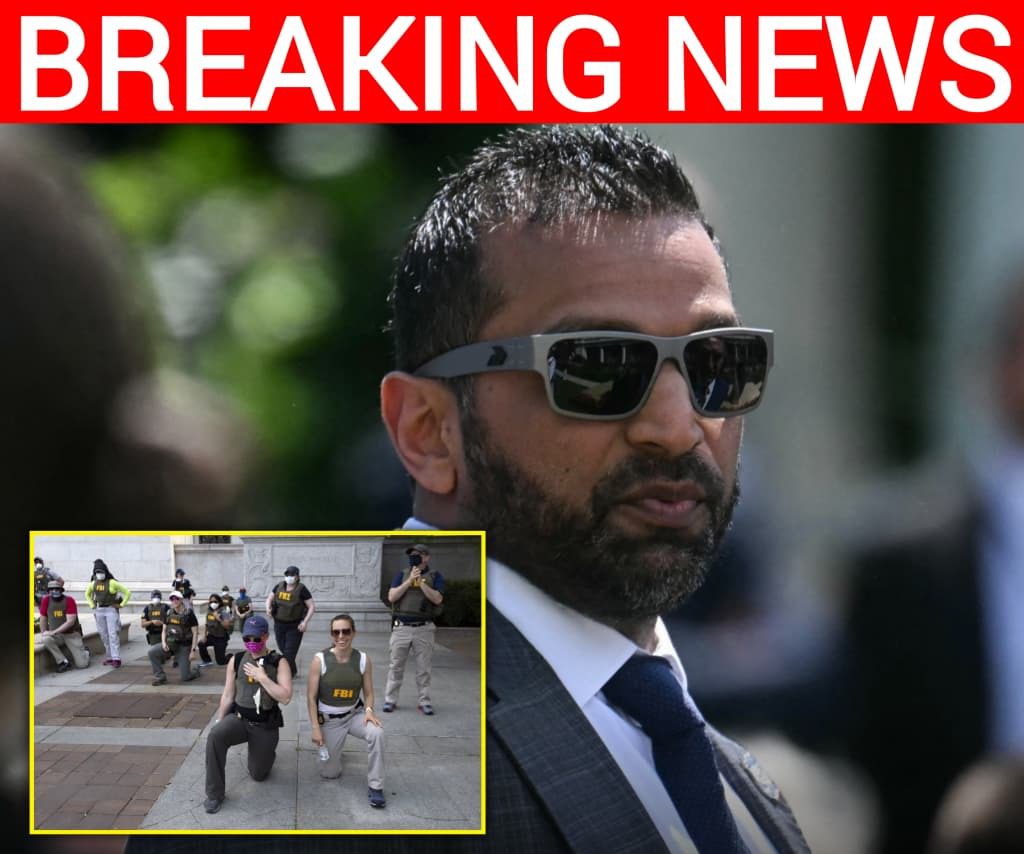Kash Patel Cleans House at the FBI, Firing Agents Who Knelt During George Floyd Protests as Part of His Pledge to Overhaul the Bureau
The FBI has entered another historic turning point with its new director, Kash Patel, making a bold move that is already sending shockwaves through Washington. According to the Associated Press, Patel has fired the agents who famously knelt during the George Floyd riots in 2020, a moment that at the time symbolized solidarity but also stirred major controversy within the ranks of law enforcement.
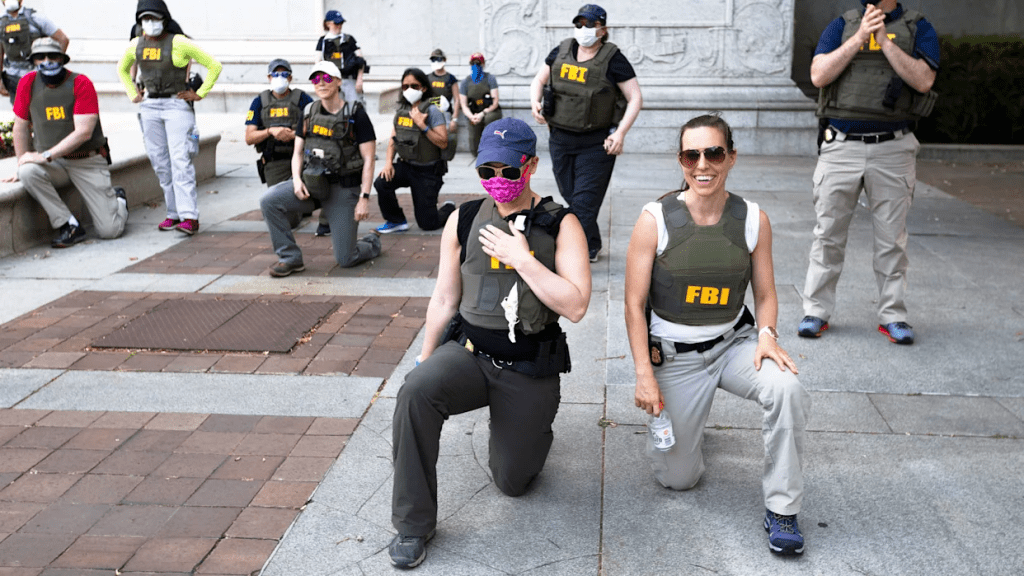
The kneeling gesture, captured in widely circulated photographs, was seen by some as a recognition of public pain after Floyd’s death, but it was criticized by others as a breach of the FBI’s duty to remain impartial and above political symbols. At the height of those protests, Minneapolis alone saw over 600 arrests and $550 million in property damage, according to a 2020 Wikipedia summary of official records, making it one of the most turbulent moments in modern American history. To some observers, FBI agents taking part in symbolic gestures during those weeks blurred the line between personal opinion and institutional neutrality.
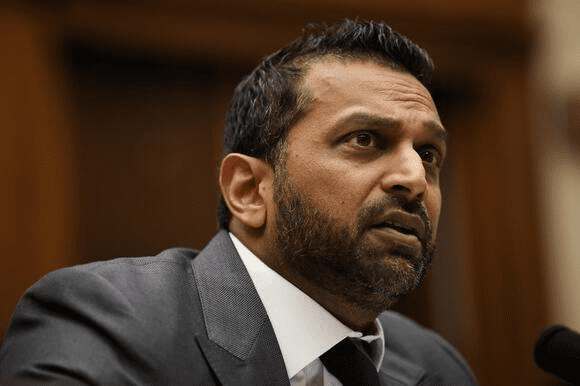
Kash Patel, appointed as FBI Director in 2025 and already the first leader of the agency of South Asian descent, has made clear that his mission is to completely overhaul the Bureau. From the day he stepped into the role, he promised reforms that would shake the institution to its core, even stating on his own “Kash’s Corner” podcast in September 2024 that he supported closing the FBI’s current headquarters as part of a broader restructuring. Firing the kneeling agents is now being seen as one of the first major steps in fulfilling that promise.
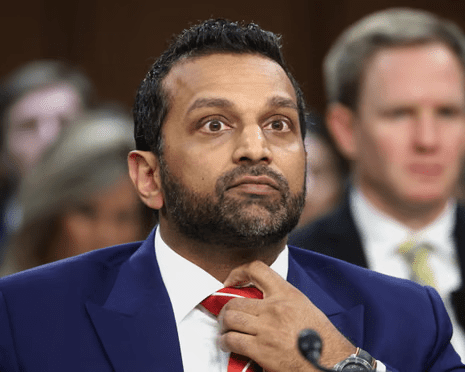
Patel’s critics argue that this decision reflects a deeper trend of political loyalty tests inside the FBI. A 2021 NPR report on lawsuits within the Bureau suggested that during Trump’s earlier years in office, some personnel felt pressured to prove loyalty, a claim that has resurfaced with Patel’s new actions. But Patel and his supporters counter that this isn’t about politics — it’s about restoring credibility and impartiality. For them, agents displaying symbolic gestures during a time of violent unrest undermined the Bureau’s integrity and gave the appearance of siding with a movement rather than upholding the law evenly.
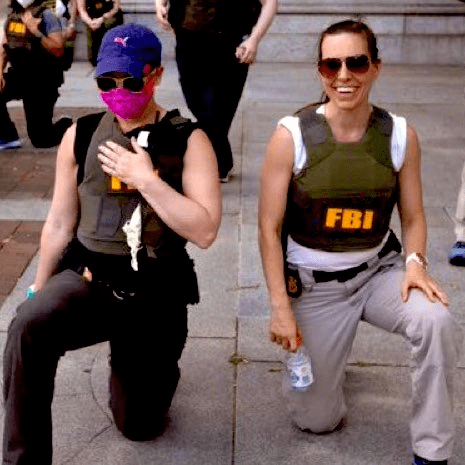
The firings also highlight a larger debate in American society over what role law enforcement should play in times of civil unrest. When agents or officers take visible stances — whether kneeling, marching, or posting opinions online — does it humanize the institution or does it erode the trust that they will apply the law without bias? For Patel, the answer appears to be clear: law enforcement cannot afford to send mixed messages. His view is that an FBI agent’s oath is to the Constitution, not to political narratives or social movements, no matter how powerful or emotional those moments may be.
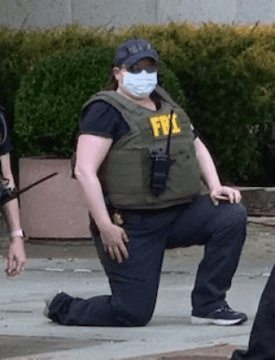
There is no peer-reviewed research yet on the implications of firing agents for symbolic gestures like kneeling, which makes Patel’s decision one of the most closely watched in the Bureau’s history. It could become a precedent for future leadership — either reinforcing a standard of strict neutrality or sparking backlash from those who believe public service should leave room for empathy in historic moments.
For now, Patel’s action is being praised by his supporters as proof that he is serious about cleaning house. His critics remain skeptical, arguing that he is risking morale inside the Bureau. But either way, Patel has once again proven that his leadership will not be business as usual. The firing of the kneeling agents is more than a headline — it is a signal that the FBI under Kash Patel is entering a new era, one defined by his uncompromising vision of accountability and reform.
